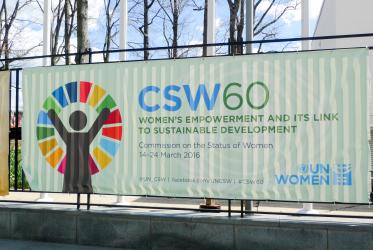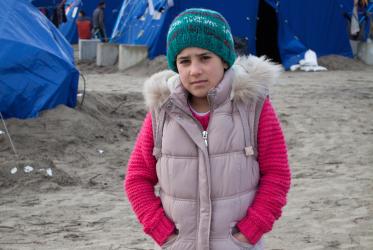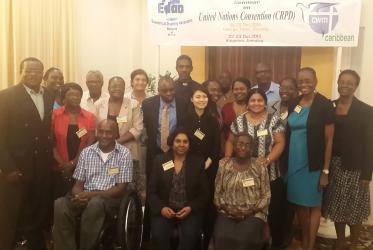Displaying 81 - 100 of 143
13 April 2016
WCC/UN conference calls for coordinated action on refugee crisis
20 January 2016
Paris climate agreement hailed by ecumenical leaders
14 December 2015
UN Climate summit results vital for world’s future
26 November 2015
“No decision about us without us”
09 November 2015
Local and global work saves lives
22 October 2015
Conflict reporting fails women
06 October 2015
WCC Executive Committee speaks out on migrant crises
12 June 2015
WCC Annual Review 2014
28 April 2015
Gender sharpens mission conversations
21 April 2015
WCC member churches pursue climate justice
01 April 2015
Marianne Ejdersten appointed as WCC director for Communication
03 December 2014














